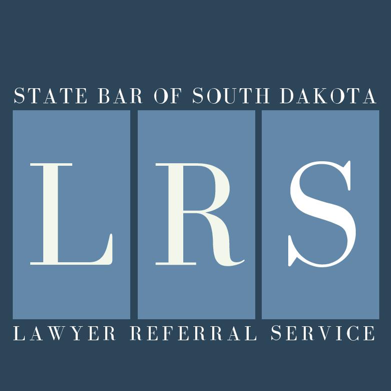Your personal estate planning
Every adult person should have an estate plan. One way of creating an estate plan is the living trust. The purpose of this brochure is to give you answers to questions frequently asked about living trusts so you can determine whether a living trust is right for you.
A living trust, also known as a revocable trust, is an alternative way to own property. You create a living trust during your lifetime by signing a trust agreement which is a legal document that directs how property transferred to the trust will be managed, when and to whom the income and principal from the trust will be paid, and to whom the trust property will be distributed when you die. You are called the settlor, grantor, or trustor of the trust, while the person to whom you transfer your property is called the trustee. The persons who will receive the income during your lifetime or who will receive the trust property after your death, are called the beneficiaries. You may be the settlor, a trustee and a beneficiary, all at the same time. The property in the trust is called the trust principal, corpus, or res. As the settlor, you may change the terms of the trust agreement or may revoke the trust and regain ownership of the trust property.
You may decide you need a living trust, but first you should review your own situation with your lawyer to decide whether or not a trust is correct for you. It could be that a will, some other type of trust, or other arrangements would better fit your situation.
You may be the only trustee or you may be a co-trustee. You may name another individual(s), or financial institution with trust powers, as your trustee. You should also provide for a successor trustee to act in the future in the event of your disability or after your death. Anyone you select as a co-trustee or successor trustee should be capable and trustworthy. Family members may or may not be selected by you depending upon your circumstances and their abilities. You should also consider whether a bank can provide services that an individual cannot, but keep in mind that only banks with trust authority can act as trustee.
It is possible to avoid probate of assets held in a living trust. Much of the current interest comes from concern and publicity about the perceived cost and length of time to complete a probate. Lengthy delays and excessive costs of probate are problems in some heavily populated states, but in South
Dakota probate can be relatively simple and economical. You should consult with your lawyer about the comparative costs of various estate plans.
- You can have another person or bank which has expertise act as a trustee and make investment or other management decisions for you.
- You can avoid the necessity of having a conservator manage your property if you become incompetent, but only if all of your property is in the trust.
- After your death, the trustee can distribute the trust assets directly to the beneficiaries without probate.
- This is particularly beneficial if you own real estate in more than one state as it may avoid having to conduct a probate proceeding in each state.
- It may be more difficult to contest than a will.
- After your death, the costs and expenses for personal representatives, lawyers, accountants and others may be less.
- It is possible that a living trust can be kept more confidential than a will.
- You will undoubtedly spend more time and money in properly creating and transferring your assets to a living trust than you would to have a will prepared.
- To effectively avoid probate, you must keep track of your assets and keep all of your property in the trust, including property acquired after you create the trust.
- You may experience problems in transferring or selling assets or making purchases with trust checks and encounter banks, transfer agents or others who want to see the trust agreement in order to know that the trustee has certain powers and authority.
- Upon your disability or death, the management of your trust assets will depend upon the honesty and management ability of your successor trustee who may act without court control or involvement.
- You may have to pay trustee's fees and expenses if you use a third party as trustee, including the costs of filing an annual trust income tax return.
- Because a living trust does not require that notice be given to your creditors, a creditor can make a claim against the trust beneficiaries years after your death.
- No court determines the validity of the trust as the case with a will.
The grantor of a revocable living trust retains control of the trust property. Therefore, for federal income tax purposes, as long as you act as the trustee or the co-trustee and the trust uses your social security number for its taxpayer identification number, your living trust will be treated no differently than if you had not created the trust. Likewise, you will not save any death taxes (state or federal) simply because you have created a living trust since you have not irrevocably disposed of the trust assets. Although, a properly prepared living trust can save death taxes, exactly the same savings can be achieved by a will.
In order to avoid probate, you must transfer the ownership of each and every asset to the trust. To transfer real property, a deed must be signed and recorded; transfer of publicly traded stocks and bonds will likely require the services of a broker; transfer of partnerships and closely held corporations may require the review of the governing instruments to determine whether other partners or stockholders must consent to such transfer; assets without formal legal title such as household contents and farm machinery will require a bill of sale.
Any property which you do not transfer to the trust will be subject to probate and distribution as set out in your will or the South Dakota laws providing for distribution of your estate if you do not have a will. You should have a will to cover any assets that are not transferred to the trust. This may be a "pourover will" which transfers any property which you own at the time of your death to your living trust or a will which has other provisions.
Generally, no. Your trustee must first pay your debts and expenses resolve any trust problems, file tax returns (income, state estate tax and federal estate tax) and pay any taxes that are due and owing.
Yes. While you are alive and competent, you are in complete control of your trust. You may change or terminate the trust at any time provided the trust document specifically gives you that right.
You can use a form or kit or even prepare the trust agreement yourself, but your situation may not fit the form, or the form may have been poorly prepared and may lead to adverse tax consequences and conflicts over property distributions. Problems with the fonus or kits may not surface until years later, sometimes not until after your death when you cannot change the trust and clear up the problem.
Warning
Certain publicity and persons selling living trust kits have been misleading people into thinking that the property in a living trust is protected from taxes and creditors. This is not true! A living trust will not protect your property from nursing home expenses, hospital bills, or other creditors, nor will the creation of a living trust qualify you for Medicaid.
Conclusion
You have taken a lifetime to accumulate your wealth. You should takc great care to make certain that your estate plan carries out your wishes without problems. A living trust may or may not be right for you. Competent professional help is essential to make certain that your estate plan meets your specific needs.
This information is based in South Dakota law and is designed to inform, not to advise. No person should ever apply or interpret any law without the aid of an attorney who knows the facts and may be aware of any changes in the law.

Get a consultation from a local, qualified lawyer.
Get started ⟶